Ethical Dilemma Cafe Kicks Off Community Ethics In Tech Project
The following post was written by MozFest Community member Craig Steele and originally posted on Mozilla Festival website. Image Credits: Connor B. and Craig Steele.
How much do you value your personal information? Would you be willing to hand over some personal information in exchange for a free coffee? That’s exactly what I did when I visited a café where the currency is your data.
Being part of the Mozilla community
I’ve been a fan of Mozilla (and Firefox user) ever since I first joined the web. Then, in 2013, I was awarded a “Digital Makers Fund” grant from Mozilla, Nominet, and Nesta to grow CoderDojo, a network of volunteer-led coding clubs for young people in Scotland.
Since then I’ve continued to follow the Mozilla Foundation, and have joined the community every year at MozFest. At the most recent MozFest, my colleague Daniel and I led an interactive activity where we looked at how data science is used to defend rhinos from poachers
The Mozilla Festival is a key moment on my calendar. It’s a great way to connect with likeminded technologists and creatives. I always learn something new, and usually leave filled with ideas. It’s that excitement that drew me to take part in the Ethical Dilemma Café spin-off event.
My trip to the Ethical Dilemma Cafe
The Feel Good Club on Hilton Street in Manchester, was transformed into the Ethical Dilemma Café. Mozilla and the BBC’s Research and Development department worked together to create this event to get people thinking about data consent and privacy.
So what is it? The Ethical Dilemma Cafe is a cafe with a catch. Even before stepping inside we were warned we were consenting to have our personal data tracked in the café. By opening the door, we were agreeing to those terms and conditions.
Inside, there were microphones and cameras placed beside the tables; watching and listening to everything going on inside. Some of those cameras and microphones could be controlled remotely by visitors to the website.
To get the free coffee, Daniel scanned a QR code on his lanyard, and then logged into the “Coffee with Strings” app. This is the point where you have to answer a personal question, handing over sensitive details to get your free coffee. Once you’ve answered you get the virtual token to exchange at the till.
Being spied on while you sip a latte isn’t something you’d normally expect in a local coffee shop, but the café is a metaphor for today’s Internet. Often online we’re given something we really want – the latest music, news articles, entertaining videos on YouTube – but it’s not truly free – we’re trading some of our personal data in exchange for what we want.
Other things to explore in the café
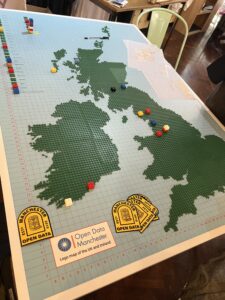
As well as the free coffee, The Ethical Dilemma Café had a bunch of things to see and do. There were installations, talks, and workshops by BBC R&D, Lancaster University, Open Data Manchester CIC, and Northumbria University.
My highlights include Edge of Tomorrow, an arcade game by Lancaster University. This game explained some of the environmental effects that can be caused by cyber attacks.
A data visualisation from Open Data Manchester got us to use lego blocks to plot our happy places. The coloured bricks representing our happiness levels, and where we placed them on the map corresponded with the place we were most happy.
Daniel and I crushed into The Caravan of the Future, an immersive design showcasing what the living room of the future might look like. Using voice assistants, we were able to speak directly to the caravan and it adjusted the lights, temperature, and environment to suit us. Based on the way we looked and our facial expressions it even tried to recommend a TV show it thought we might enjoy.
Want to help school pupils fight biased algorithms?
This research trip was the perfect start to our own new education project: we’re creating an “Ethics in Tech” interactive learning resource that will help primary school pupils learn about racist, sexist, and ageist computer algorithms. We need to prepare the next generation of digital leaders to understand the dangers of biased algorithms. To fight inequality, they need to know how to spot them, and how to tackle them.
As part of the research and development phase, I want to connect with technology professionals across the country who have experience creating algorithms that directly affect people. Get in touch with me if you want to learn more.
The “Ethics in Tech” project is supported by Digital Xtra Fund, a Scottish charity that helps enable extracurricular digital tech activities for young people, and is funded by the Scottish Government.
The Ethical Dilemma Café challenged me to think about the value of personal data, and how data and algorithms shape our world today. It was fun taking part in this small scale event, and it definitely got me more excited for next year’s Mozilla Festival.
About the Author
Craig Steele is a computer scientist, educator, published author, and creative technologist, who helps people develop digital skills in a fun and creative environment. His company, Digital Skills Education, offers digital skills training across Scotland and internationally.

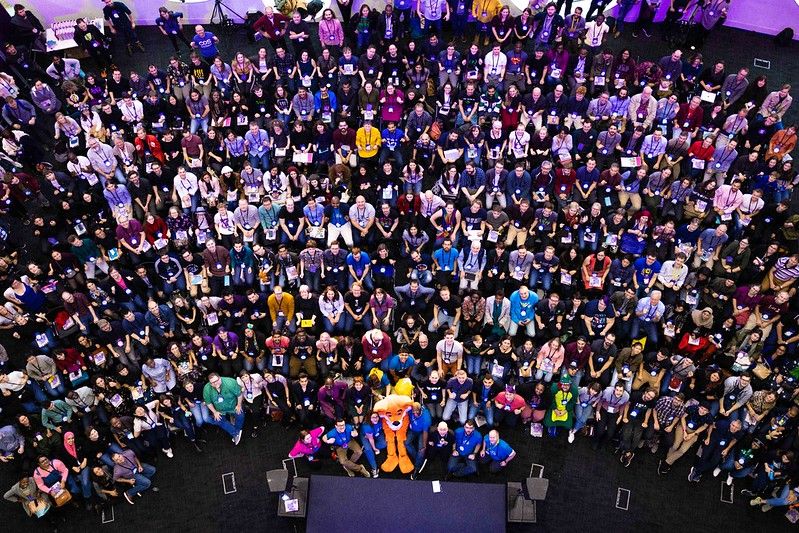
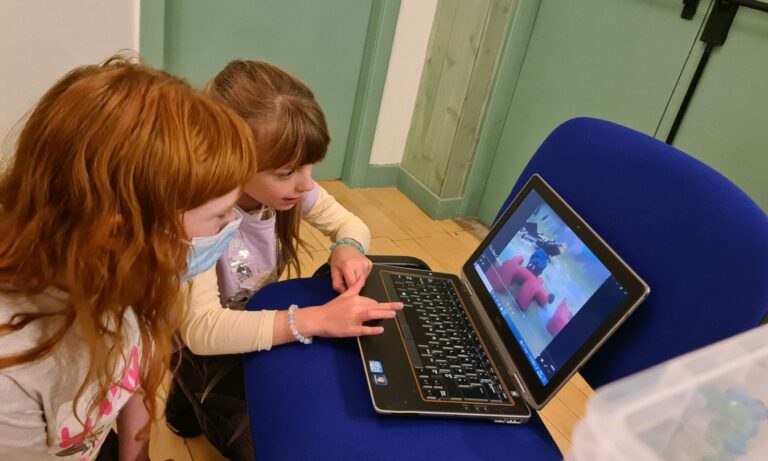
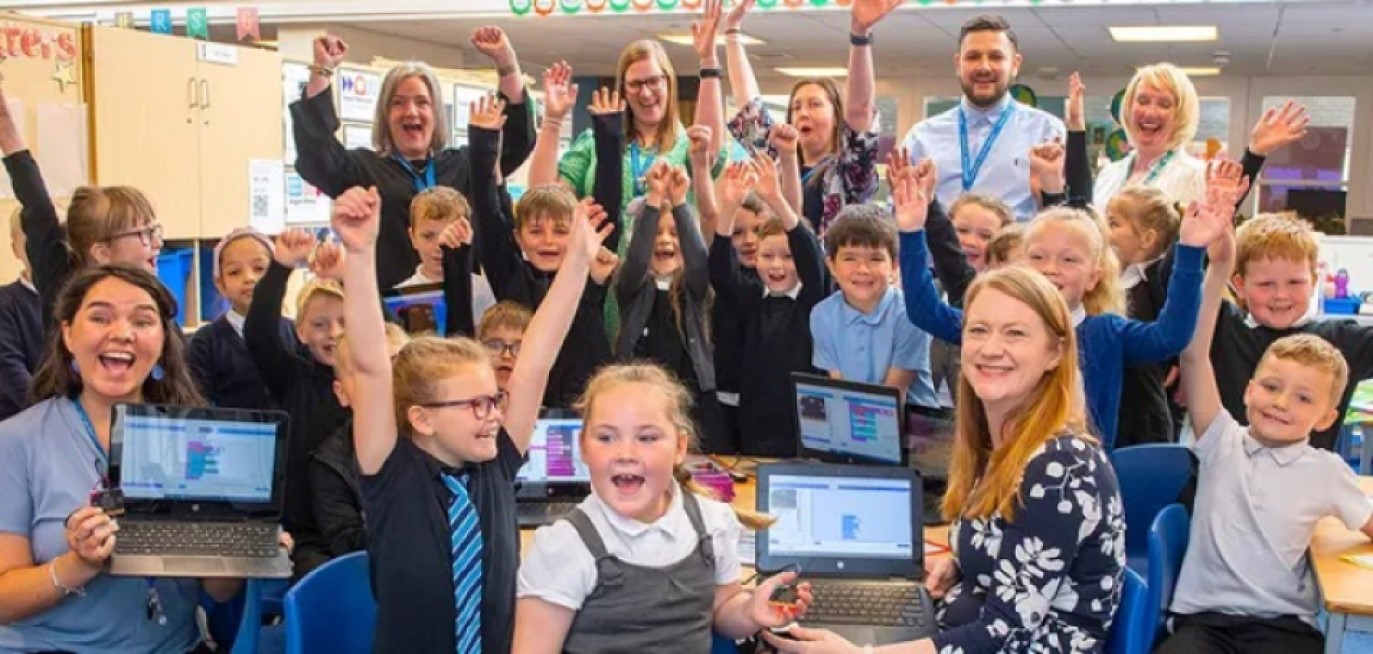
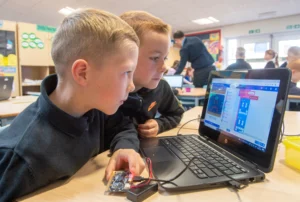 Delivered by education non-profit, The Micro:bit Educational Foundation, the micro:bits are pocket-size entry-level coding devices that offer children an enjoyable entry into coding and computing science. There are over six million devices already in use across the globe, including most UK secondary schools. In the coming weeks, all primary schools across Scotland will receive twenty devices alongside a host of new teaching resources tailored for primary school level in a world-leading investment from the Scottish Government to develop digital skills in even younger children.
Delivered by education non-profit, The Micro:bit Educational Foundation, the micro:bits are pocket-size entry-level coding devices that offer children an enjoyable entry into coding and computing science. There are over six million devices already in use across the globe, including most UK secondary schools. In the coming weeks, all primary schools across Scotland will receive twenty devices alongside a host of new teaching resources tailored for primary school level in a world-leading investment from the Scottish Government to develop digital skills in even younger children.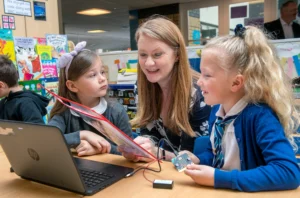 During her visit, Somerville saw the devices come to life in the hands of children aged between 6-8 in an exciting, interactive lesson around health and wellbeing. micro:bit ambassadors shared an insight into the wide range of capabilities the nifty devices offer, while teachers at the school explained first-hand how the new investment is helping integrate digital skills and computational thinking into lessons across the entire curriculum as part of the Scottish Government’s Scottish Technology Ecosystem Review programme.
During her visit, Somerville saw the devices come to life in the hands of children aged between 6-8 in an exciting, interactive lesson around health and wellbeing. micro:bit ambassadors shared an insight into the wide range of capabilities the nifty devices offer, while teachers at the school explained first-hand how the new investment is helping integrate digital skills and computational thinking into lessons across the entire curriculum as part of the Scottish Government’s Scottish Technology Ecosystem Review programme.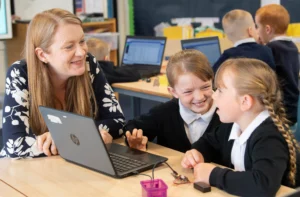 Shirley-Anne Somerville, Cabinet Secretary for Education and Skills, Scottish Government: “It has been inspiring to see first-hand how these devices can help to get children thinking creatively and to be enthused about technology. It’s an exciting prospect to imagine these scenes being replicated in schools all over Scotland in the coming weeks and months, and we’re proud to be leading the world in creating quality engagement in computing sciences among our young learners.”
Shirley-Anne Somerville, Cabinet Secretary for Education and Skills, Scottish Government: “It has been inspiring to see first-hand how these devices can help to get children thinking creatively and to be enthused about technology. It’s an exciting prospect to imagine these scenes being replicated in schools all over Scotland in the coming weeks and months, and we’re proud to be leading the world in creating quality engagement in computing sciences among our young learners.”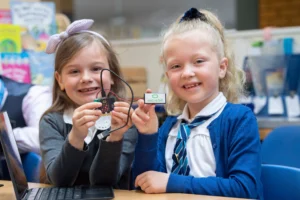


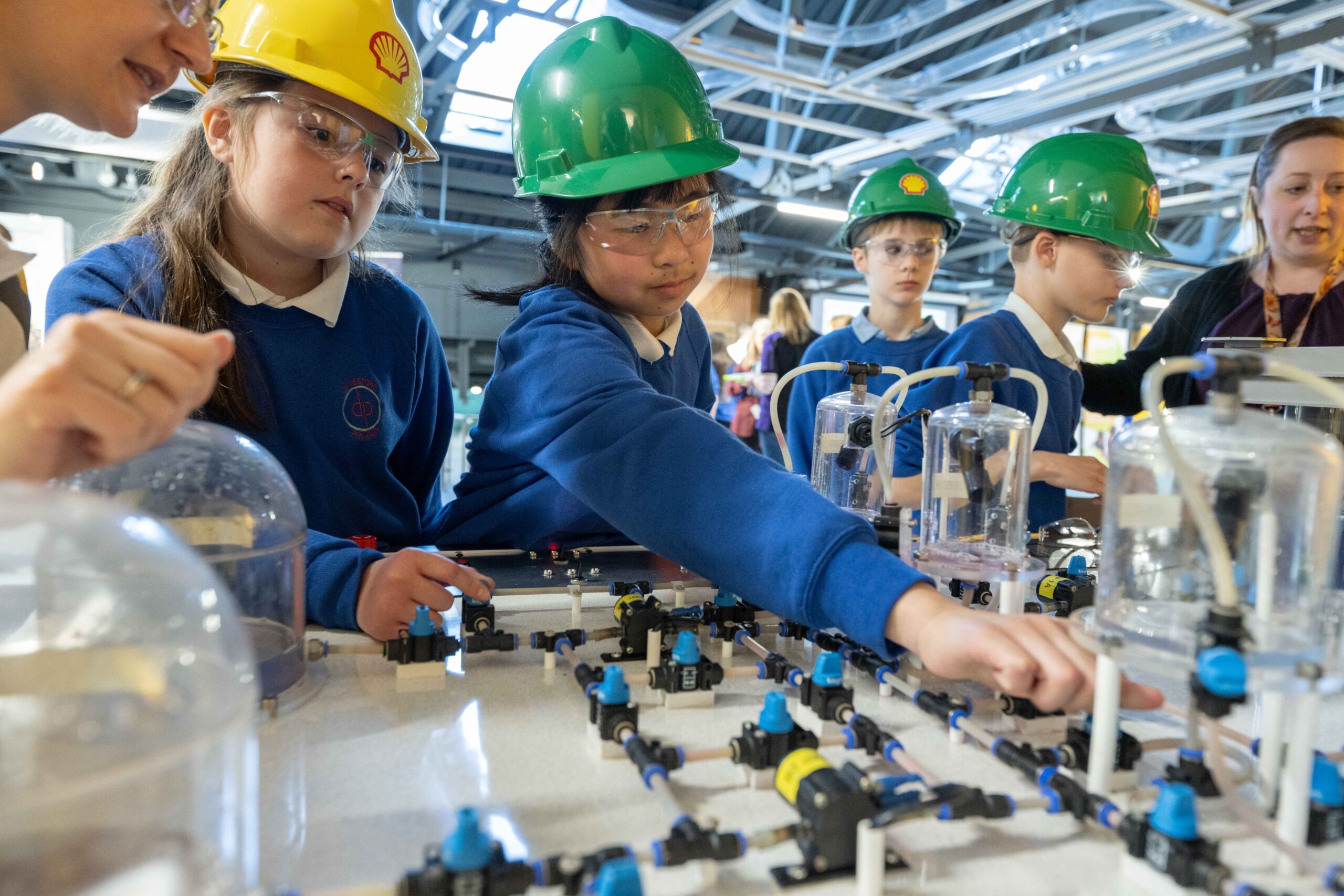




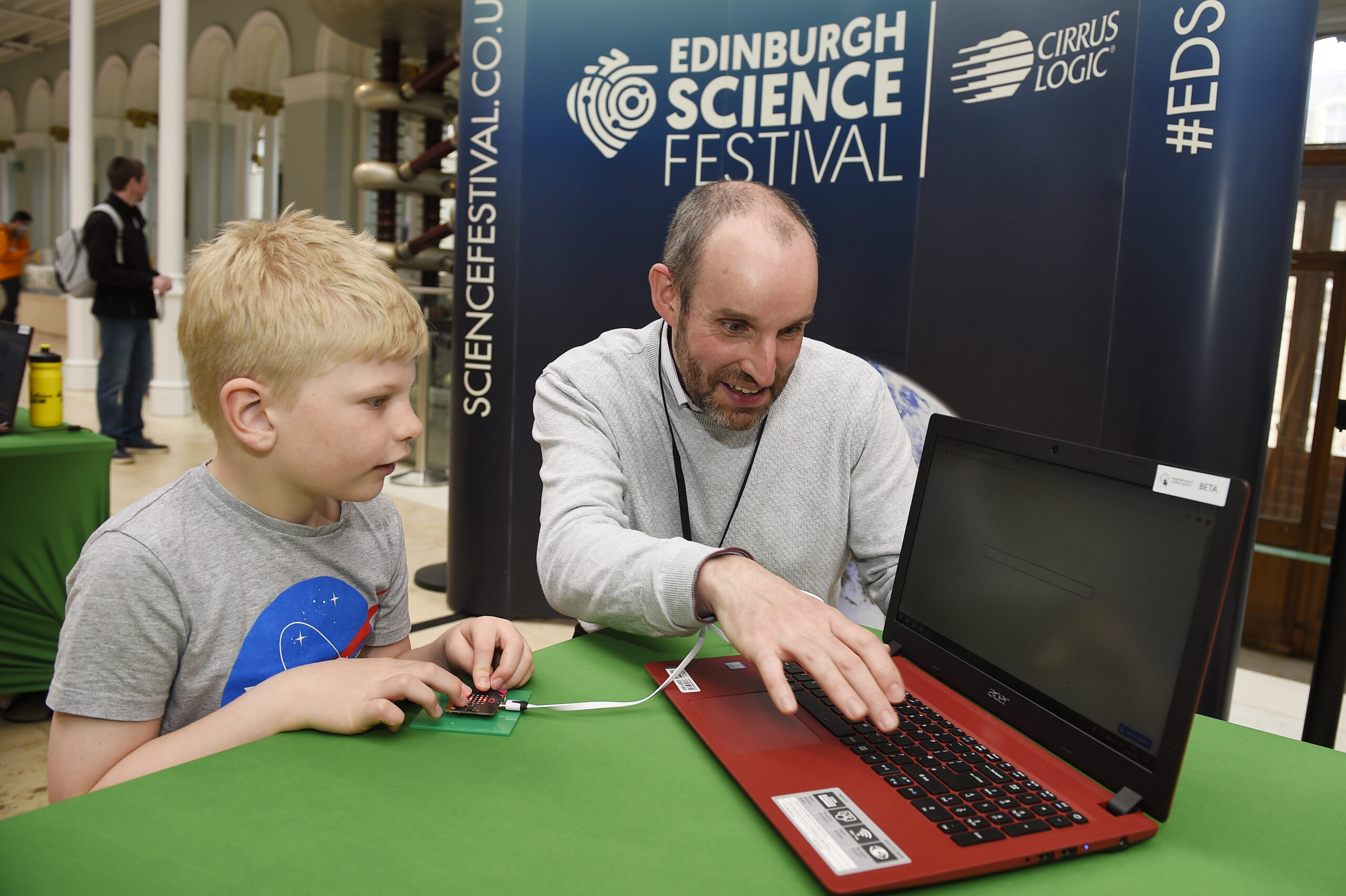

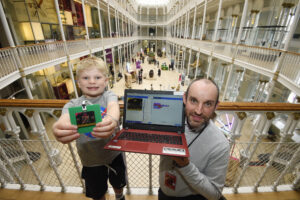
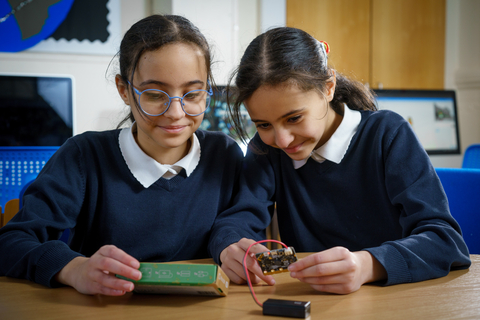


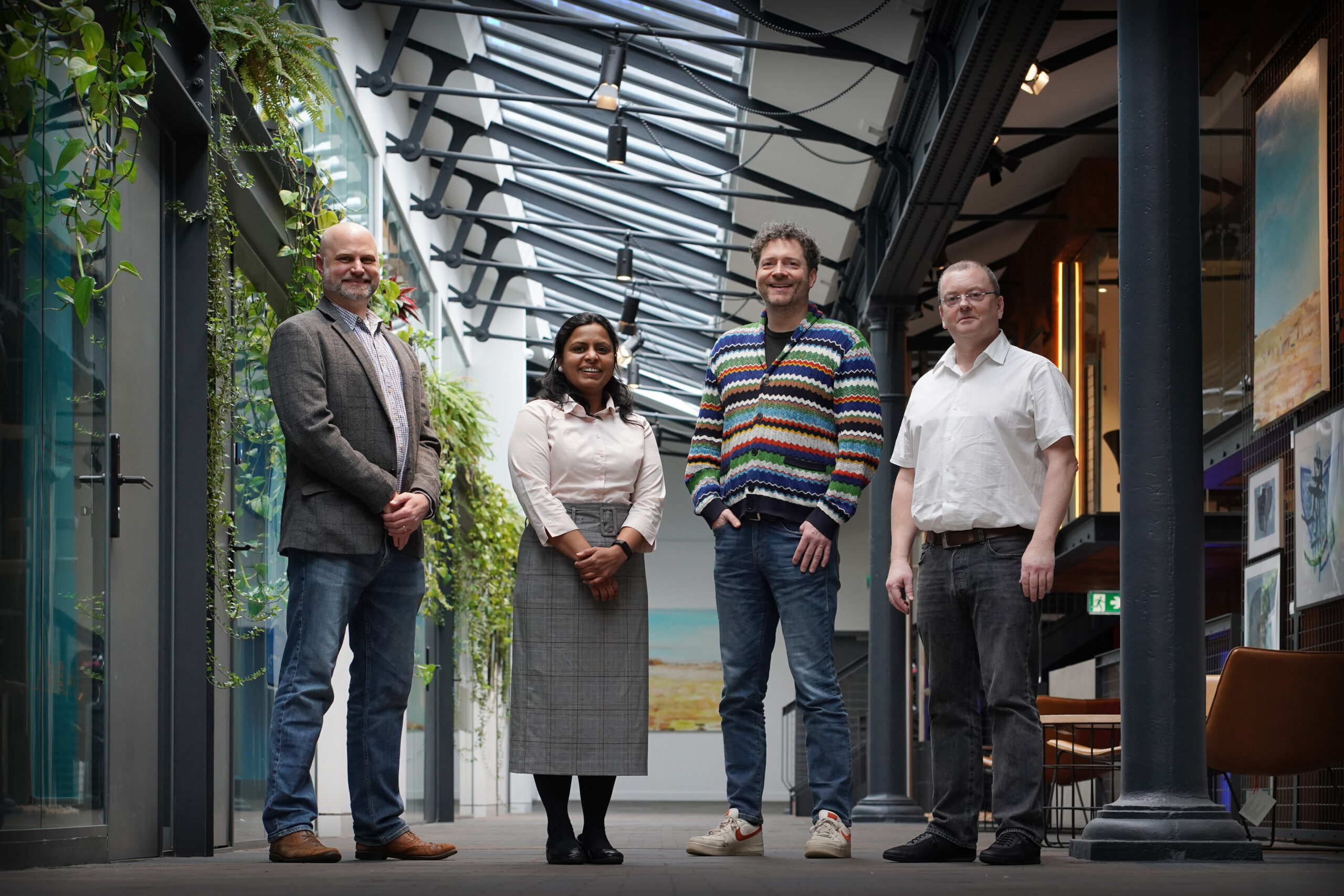
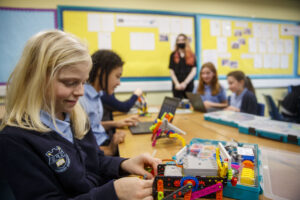 Chris van der Kuyl, Principal, Chroma Ventures, said: “Our investment in human talent must begin at an early age through primary and secondary, en route to colleges, universities, or apprenticeships. Extracurricular activities like those funded by Digital Xtra Fund play such an important role for young people on that pathway, especially for those who may not have computing opportunities in the classroom.”
Chris van der Kuyl, Principal, Chroma Ventures, said: “Our investment in human talent must begin at an early age through primary and secondary, en route to colleges, universities, or apprenticeships. Extracurricular activities like those funded by Digital Xtra Fund play such an important role for young people on that pathway, especially for those who may not have computing opportunities in the classroom.” Kraig Brown, Digital Xtra Fund’s Partnership and Development Manager said: “We are very excited to be able to offer this
Kraig Brown, Digital Xtra Fund’s Partnership and Development Manager said: “We are very excited to be able to offer this